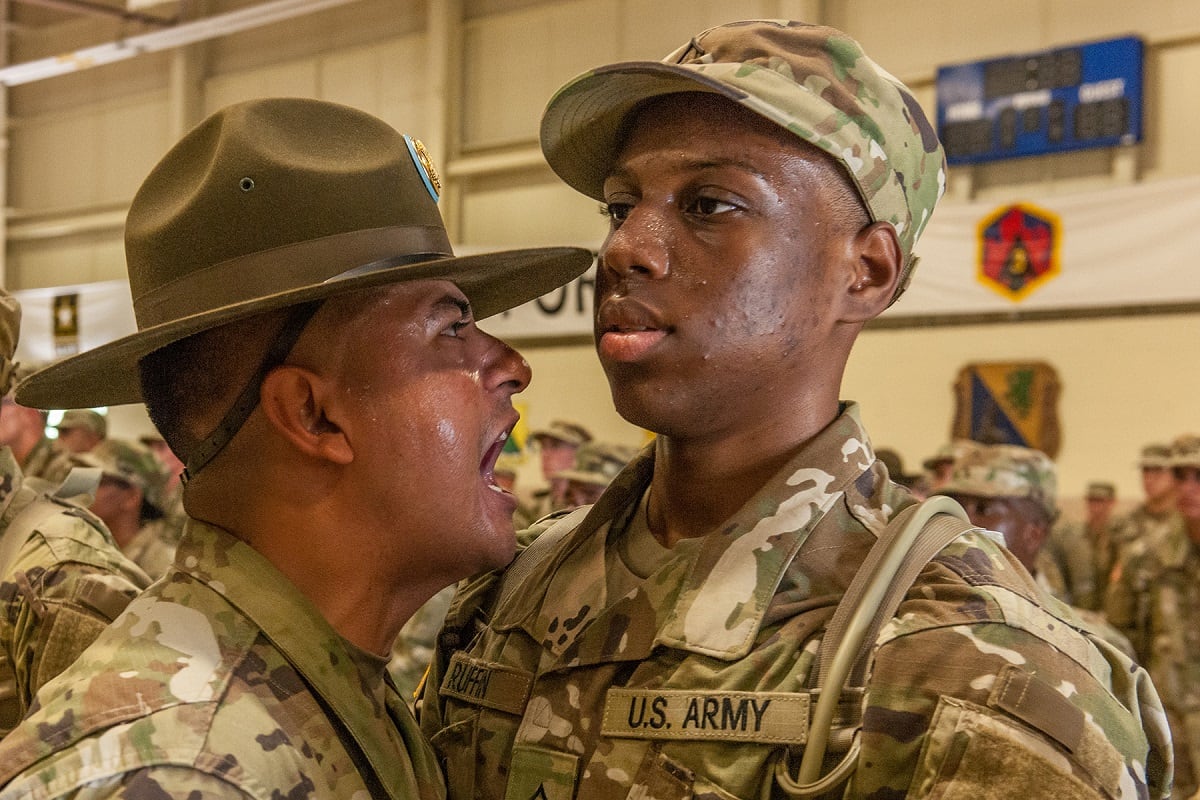Army drill sergeants are perhaps best known for producing anxiety among new recruits from the minute they set foot on basic training ground. But very few people ever stop to ask, “What causes stress among drill sergeants?”
One study, carried out by the academic journal Military Medicine and published in August, however, did just that. It turns out, drill sergeants are pretty burned out.
“This study is the first to examine behavioral health and morale of drill sergeants and to identify risk and resilience factors,” the study reads.
The authors, working under the Walter Reed Army Institute of Research Institutional Review Board, surveyed 856 drill sergeants across Army basic training sites over two months and identified several sources of stress among the service’s new-soldier shepherds.
“The most commonly experienced stressors were finding time to exercise, lack of sleep, and long work hours,” according to the survey. “Poorer outcomes were also associated with fewer hours of sleep and initial unhappiness regarding involuntary assignment to the role of drill sergeant, while better outcomes were associated with higher ratings of general leadership, health-promoting leadership, and drill sergeant camaraderie.”
One former drill sergeant took to Quora to confirm these stressors.
“The hours are long,” wrote Lucas Eyre. “The mental fatigue can be high. You don’t have a lot of time to do your own stuff. You have to plan, resource, and lead training. You answer to several levels of people simultaneously, many of whom make no secret that they’re watching for you to screw up so they can fire you (which would almost certainly derail your career in a permanent way).”
Bottom line: Career stress and sleepless nights can make for stressed-out drill sergeants. And myriad mental health issues stem from undue stress as well.
“Percentages of drill sergeants meeting behavioral health screening criteria were 19% for depression, 27% for moderate-to-severe insomnia, 14% for generalized anxiety disorder, 48% for high burnout, 32% for functional impairment, 35% for moderate alcohol misuse, 32% for off-duty aggression, and 25% for low morale,” according to the study.
Rates were measured for behavioral health outcomes including depression, insomnia, anxiety, burnout, functional impairment, alcohol misuse, aggression, and low morale. Potential risk and resilience factors included time as a drill sergeant, sleep, route of assignment, general leadership, health-promoting leadership, and drill sergeant camaraderie.
“Suggestions for policy changes include increasing the number of drill sergeants to decrease workload and allow sufficient time for recovery and sleep,” the study concludes.
Editor’s note: A previous version of this article referred to Army drill sergeants as “drill instructors.” The titles have been updated throughout this article to reflect the Army’s own nomenclature.
Sarah Sicard is a Senior Editor with Military Times. She previously served as the Digitial Editor of Military Times and the Army Times Editor. Other work can be found at National Defense Magazine, Task & Purpose, and Defense News.
